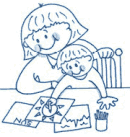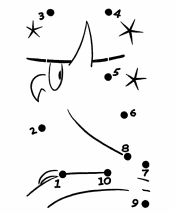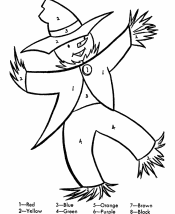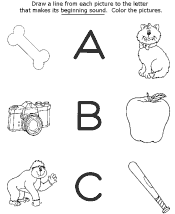|
|
Reading Games and ActivitiesHere are some ideas for reading games and language-building activities that you can do with your child to help her build the skills she needs to become a reader. Most public libraries offer free use of books, magazines, videos, computers, and other services. Other things that you might need for these reading games are not expensive. 
For each game or set of activities, we give an age span that suggests when children should try them. From one reading game to the next, we continue to talk about children at different stages: babies (birth to 1 year), toddlers (1 to 3 years), preschoolers (ages 3 and 4), and kindergartner/early first-graders (ages 5 and 6). Remember that children don't always learn the same things at the same rate. And they don't suddenly stop doing one thing and start doing another just because they are a little older. So use the ages as guides as your child learns and grows. Don't consider them to be hard and fast rules. As a parent, you can help your child want to learn in a way no one else can. That desire to learn is a key to your child's later success. Enjoyment is important! So, if you and your child don't enjoy one activity, move on to another. You can always return to any activity later on. You'll see that your role in these reading games will change, too. Just as you hold up your child when he's learning to walk, you will help him a lot when he's taking his first language steps. As he grows, you will gradually let go, and he will take more and more language steps on his own. That is why in most of the activities we say, "The first activities . . . work well with younger children. As your child grows older, the later activities let him do more."
Free Printable Worksheets for Kids >>
| |||||||||
| |
| | | ||||||


